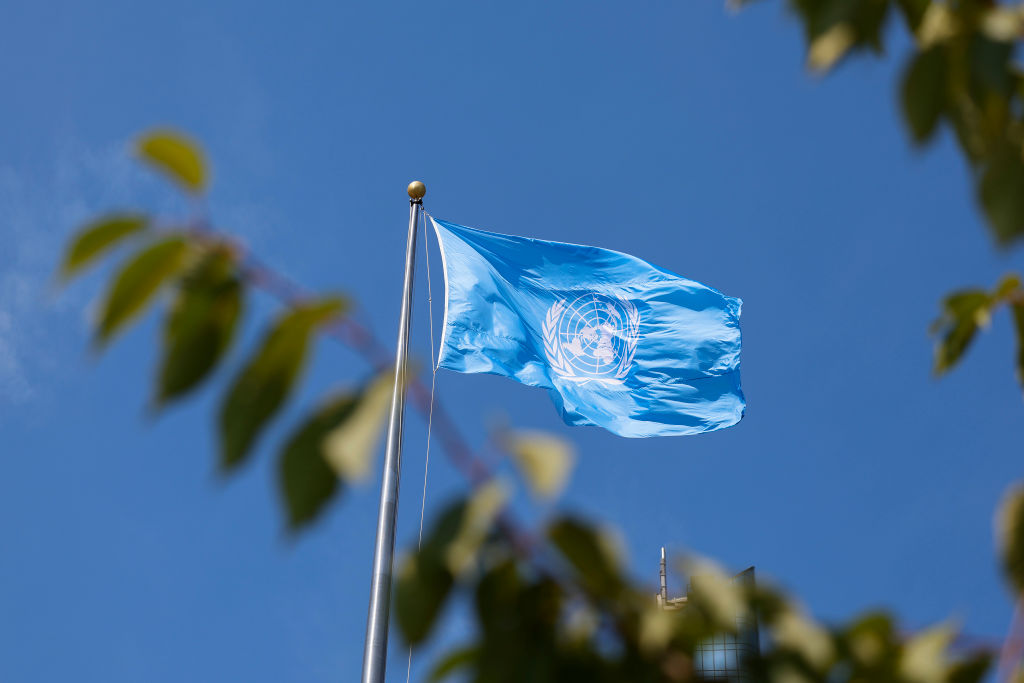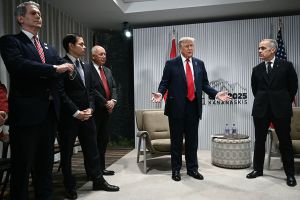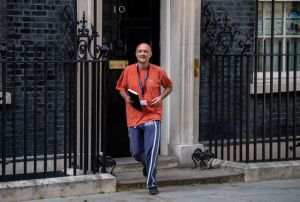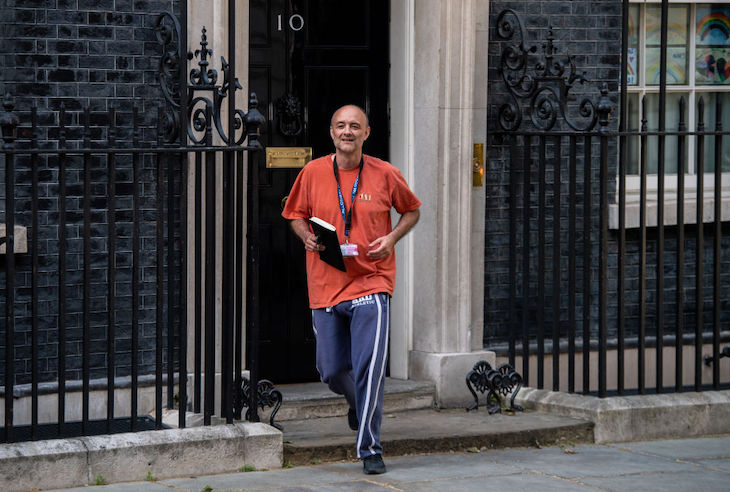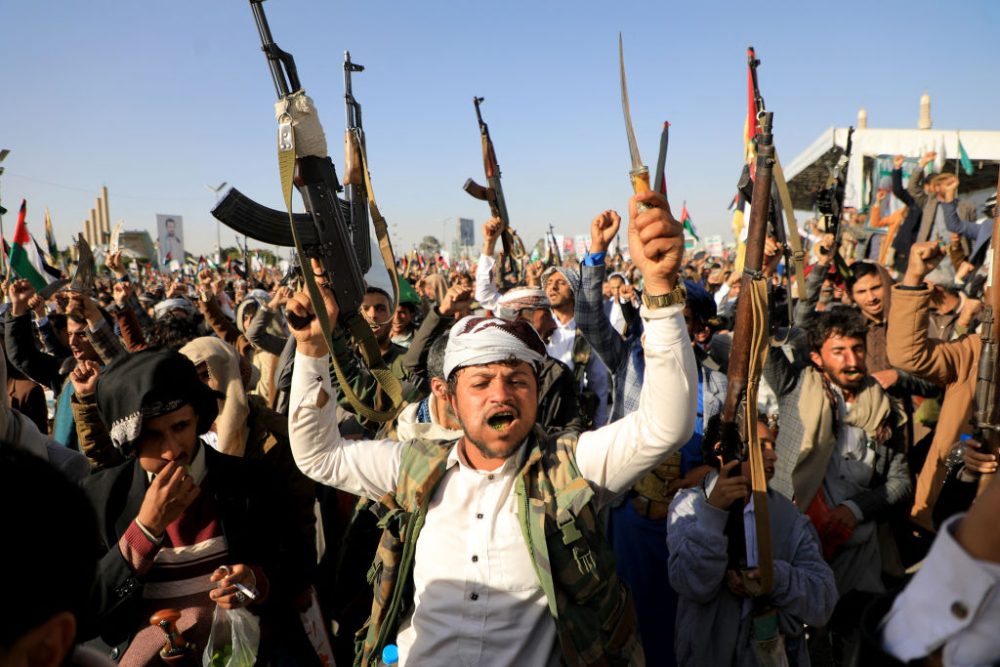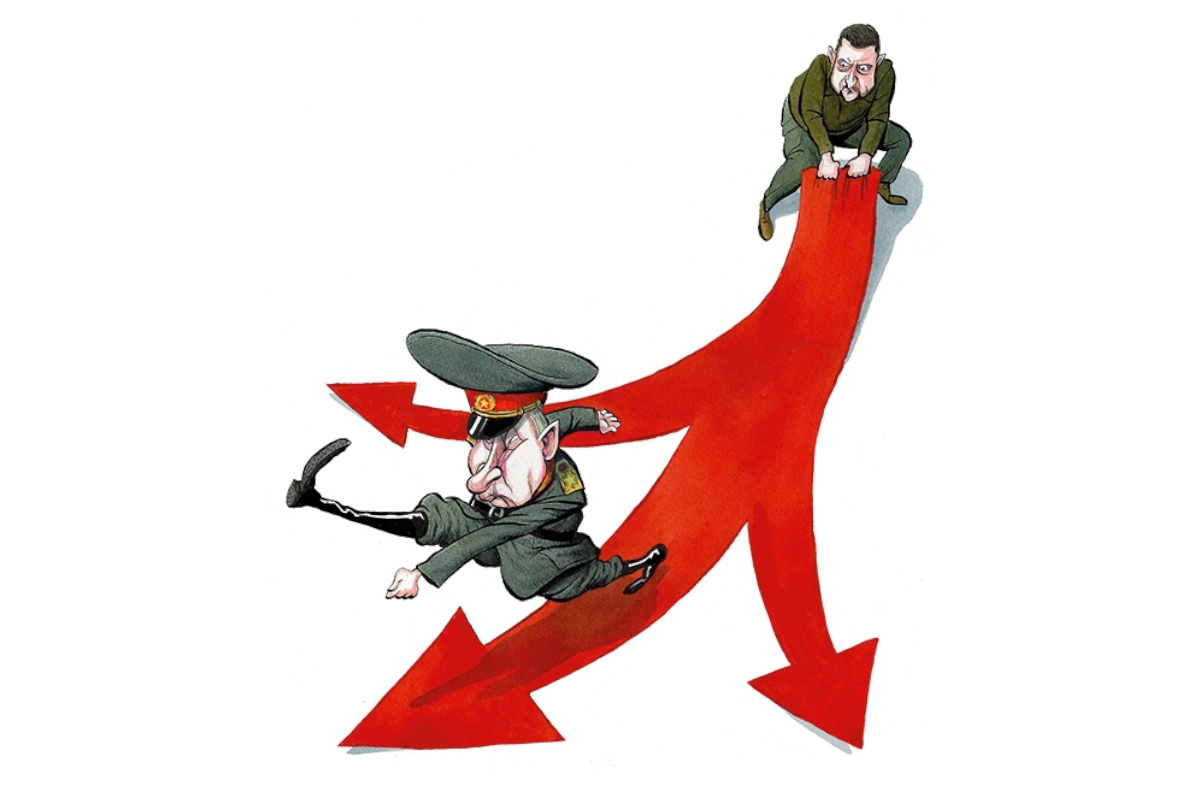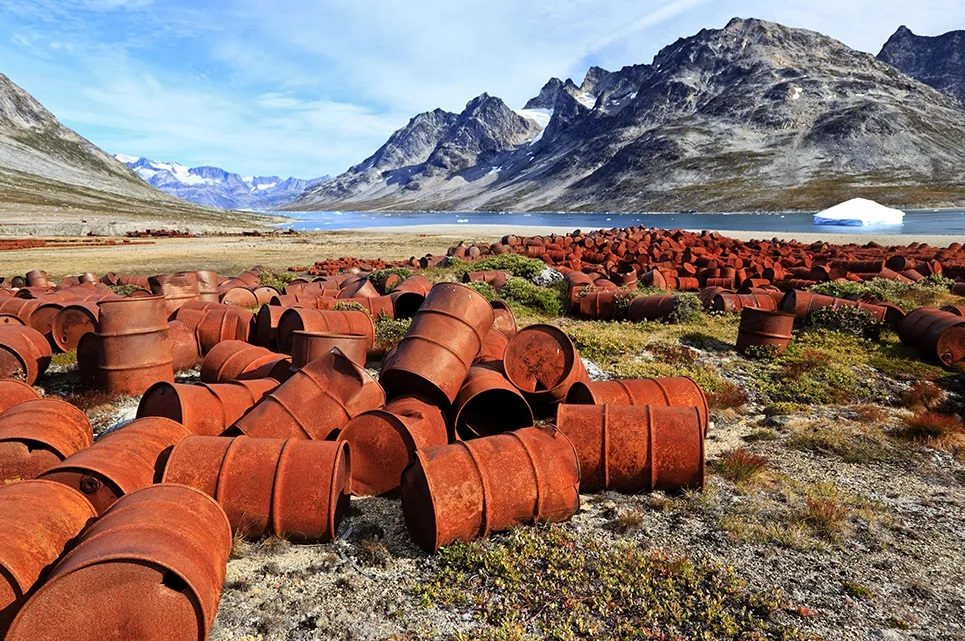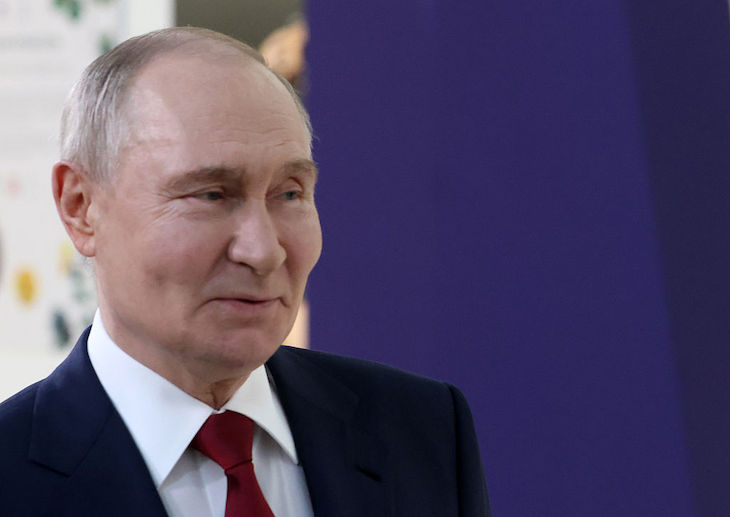Every year in late September, the east side of Manhattan morphs into a giant sea of immovable cars. The culprit: the annual United Nations General Assembly debate, where diplomats from around the world fly to New York to shake hands, give speeches, and participate in dozens of side meetings and events throughout the city.
This week’s UN General Assembly debate, however, is unique. For the first time since the UN was established after World War II, the meeting is occurring amid a large, deadly, conventional conflict in Europe. The war in Ukraine, which will cross its eight-month mark this Saturday, will dominate the session from beginning to end. Ukrainian President Volodymyr Zelensky will speak to the assembly hall by video, a privilege granted to him by an overwhelming General Assembly vote last week. The UN Security Council will host a meeting on the humanitarian situation in Ukraine, with Secretary of State Antony Blinken and Russian Foreign Minister Sergey Lavrov both expected to participate (although we shouldn’t expect any side meetings between those two).
But the world is more than Ukraine. Countries in Africa, Asia, and Latin America are increasingly concerned that other problems are being short-circuited or under-discussed. The phrase “Ukraine fatigue” isn’t far from their lips. They have a point: even as Russian and Ukrainian forces continue to bombard one another with artillery and missiles, the Horn of Africa is flirting with a famine, Haiti is devolving into anarchy, Afghanistan is suffering through drought, poverty, and hunger, and East Asia is transforming into a geopolitical flashpoint as China squeezes Taiwan and Japan considers rearming.
The UN, of course, won’t be able to resolve every problem under the sun. The multilateral organization is only as effective as its members want it to be. The UN system works on consensus, which is what makes it so frustrating. The UN Security Council, the UN’s elite body, is renowned for the deadlock, infighting, and score-settling between its permanent member states (the US, UK, France, Russia, and China), with Washington and Moscow frequently calling out one another for sins of the past (although to be fair, the Security Council has been able to produce more consensus this year than many would have expected).
Still, the UN, warts and all, is the closest thing the international community has to a troubleshooting mechanism — an organization with a deep bench of specialists and technocrats who can be called on to do the work (like peacekeeping, post-conflict reconstruction, and international development assistance) that states are either too taxed or hesitant to do themselves.
According to US Ambassador to the UN Linda Thomas-Greenfield, Washington has three main priorities for this week’s General Assembly meetings: addressing global food insecurity, advancing global health, and reshaping the UN system to ensure it’s prepared for the challenges of this century. The first two are big challenges to be sure, but relatively simple as mission sets. The last priority, reforming the UN, is anything but. In fact, it’s so difficult that one wonders why the US would choose to waste its time and energy on such a monumental task.
The holy grail of UN reform remains expanding the UN Security Council to make it more representative of the world as it currently exists. The last time the Security Council was reformed was in 1963, when Lyndon Johnson was president, Columbo was the most popular show in America, and Whitey Ford was still on the New York Yankees pitching staff. The permanent members of the Security Council are (more or less) the same in 2022 as they were in 1945. It goes without saying that the world has changed in the ensuing 77 years, as has the distribution of power and wealth (to take one metric, Japan’s GDP is more than one and a half times larger than France’s, yet Paris is the one with veto power).
US officials have long acknowledged the disparity at the Security Council, and it has been the policy of successive American administrations to enlarge the body. The Clinton administration supported adding Japan and Germany as permanent members. President Bush, no friend of the UN, was on record endorsing Council expansion. President Obama openly lobbied on India’s behalf for a permanent seat.
Yet all of the calls fell on deaf ears. UN rules make structural changes to the Security Council next to impossible. To bestow permanent member status on Japan, India, Germany, or any other country would require an amendment to the UN Charter. That, in turn, would require a two thirds vote of the General Assembly, domestic ratification from two thirds of UN member states, and approval from the Security Council’s permanent members.
In other words, the US, UK, France, Russia, and China all have to be on the same page as to which country deserves a seat at the table. It would be the diplomatic equivalent of herding cats.
Why, then, is the US saddling itself with such a thankless task? Shouldn’t America reserve its power and leverage for objectives that are actually realistic as opposed to pie-in-the-sky? These are good questions as New York transitions into a mob scene.



